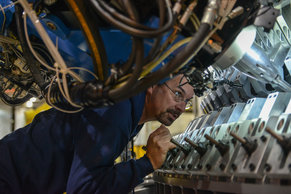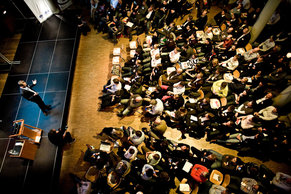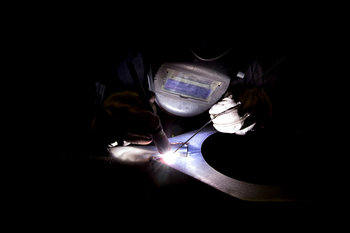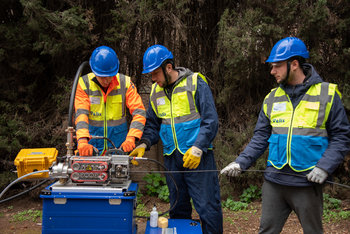
Capital Intensive Industry
Capital intensive industries are industries that require significant fixed capital such as property, plant and equipment relative to their revenue level to be competitive. For example, airlines are capital intensive because aircraft are expensive.Labor
It is common to measure capital intensity in terms of fixed capital per employee. For example, a consulting business that has $200,000 in fixed capital per employee versus a real estate investment firm that has $140,000,000 in fixed capital per employee with the latter being more capital intensive.Productivity
Generally speaking, capital intensive businesses tend to have higher labor productivity. This is certainly true on a historical basis but is occasionally changed by new business models that are knowledge intensive. For example, a farm with $2 million in equipment and three workers would tend to have higher productivity than a farm with $200,000 in equipment and three hundred workers.Capital Efficiency
Capital efficiency is the amount of net profit that is generated by a dollar of capital. Everything else being equal, businesses with less fixed capital are generally more attractive. For example, two restaurants have net income of $300,000 per year but one represents a fixed investment of $2 million whereas the other represents an fixed investment of $1 million. The $1 million dollar restaurant is less capital intensive and is probably a better investment unless revenues are about to collapse because the business isn't sustainable for some reason.Debt
Generally speaking, capital intensive businesses tend to take on significant debt. This makes a business less attractive because debt payments do not go away when business is slow. Debt can also leave a business exposed to interest rate risk, refinancing risk and exchange rate risk. A firm with a large debt may be profitable in an environment of high economic growth and low interest rates but then suddenly turn unprofitable in a recession or when interest rates go up. If debt is in a foreign currency, the business may be highly sensitive to changes in exchange rates.Capital Spending
Capital needs to be continually maintained, repaired and replaced. This is another problem with capital intensive industries that can complicate investing. For example, an airline may look profitable until it suddenly announces that it needs to replace half of its fleet in the next three years.Competitive Advantage
All else being equal, a business with less capital is more efficient than a business with more capital if they are achieving the same results in the same industry. However, there are nuances to this that are significant. It is common for companies to outsource virtually everything to reduce their capital. At some point this introduces competitive disadvantages that may render a business completely worthless. For example, a fashion brand that outsources marketing, manufacturing, logistics and customer service will have a difficult time controlling its customer experience such that it may simply fail on the market.Knowledge Intensive Industry
A knowledge intensive industry is an industry that primarily relies on human capital, also known as talent. Such industries may have few fixed assets. For example, a law office that has relatively high revenue as compared to its meager physical assets such as furniture, fixtures and computers.Labor Intensive Industry
A labor intensive industry is an industry with low productivity such that it requires a great deal of labor relative to revenue. This can be due to a lack of automation such as an agricultural crop that must be harvested by hand. It is also common for some service industries to be labor intensive because customers value service from employees that is time consuming. For example, full service restaurants are labor intensive.| Overview: Capital Intensive | ||
Type | ||
Definition | An industry, organization or activity that uses a deal of fixed capital relative to other factors of production such as labor. | |
Also Known As | Capital Intensity | |
Opposite Of | Labor IntensiveKnowledge Intensive | |
Related Concepts | ||































